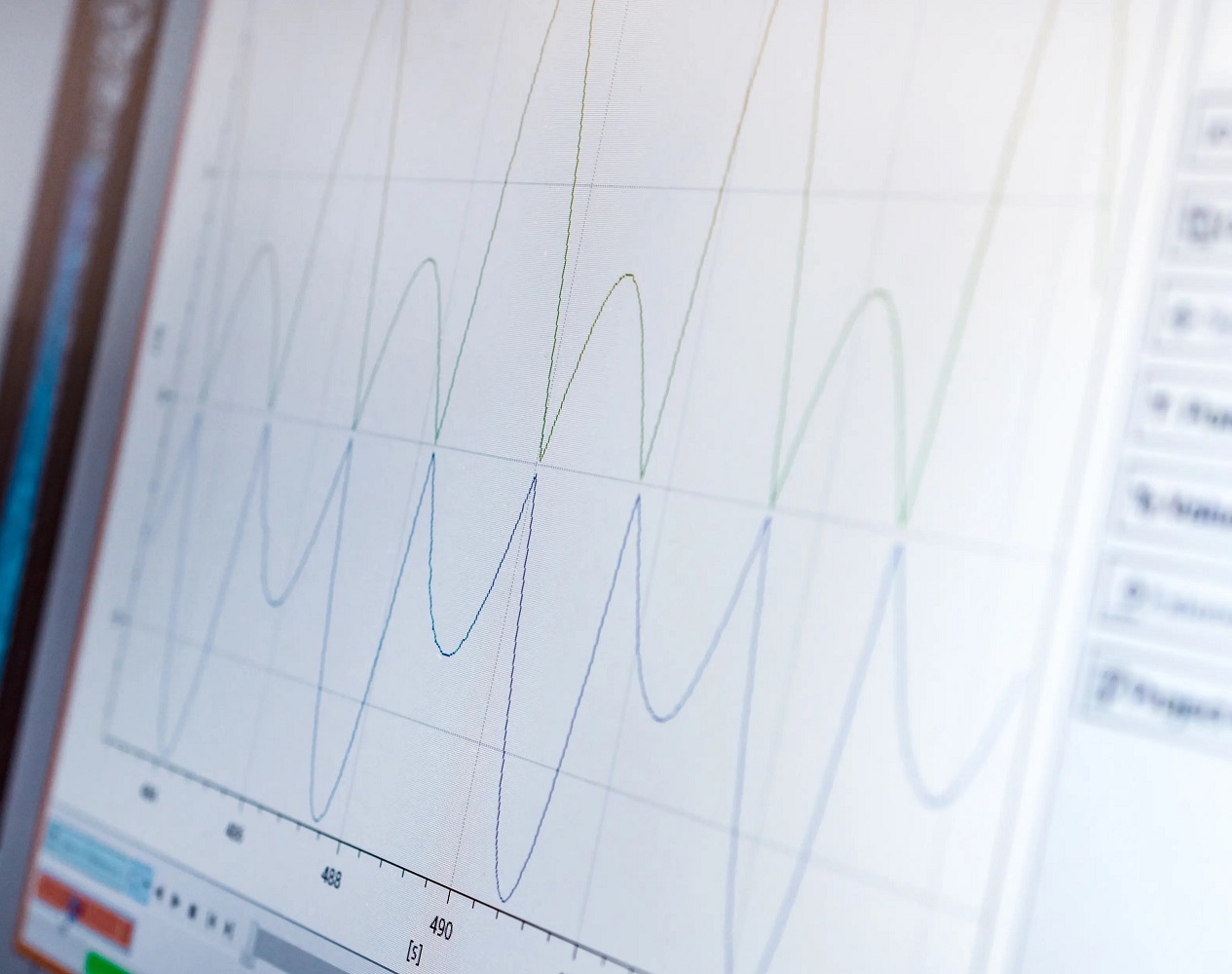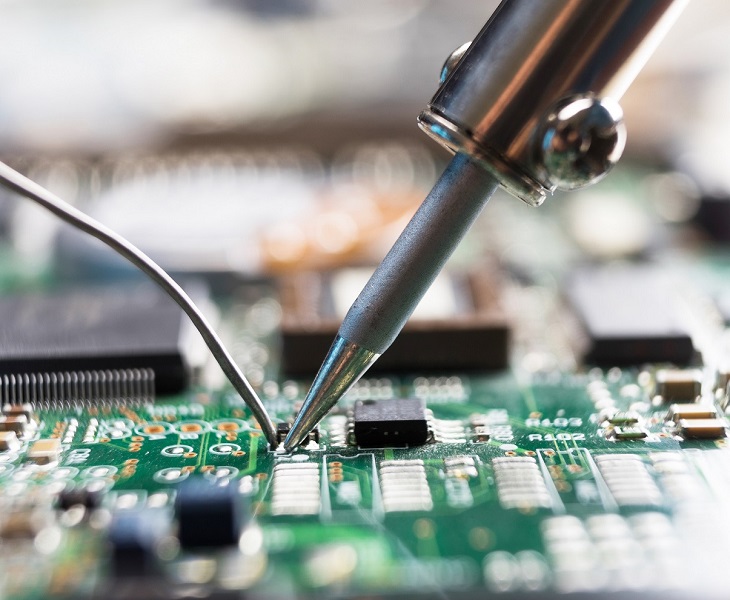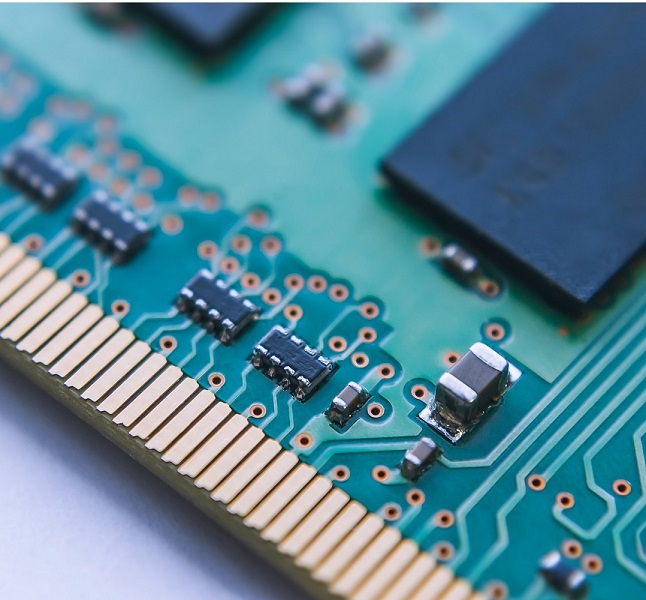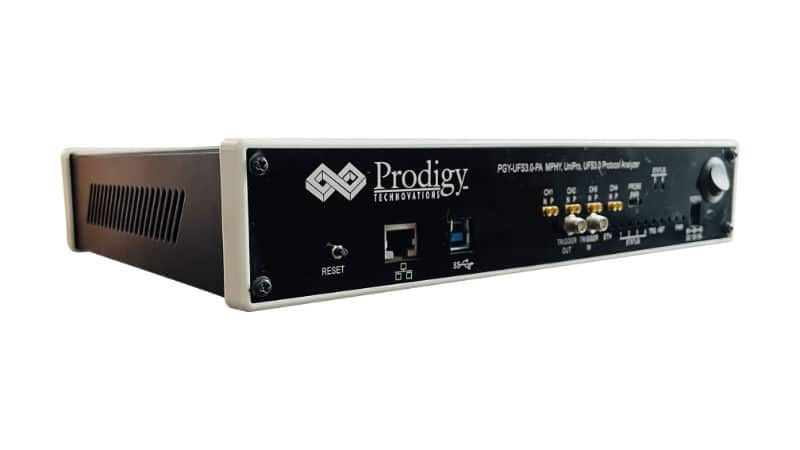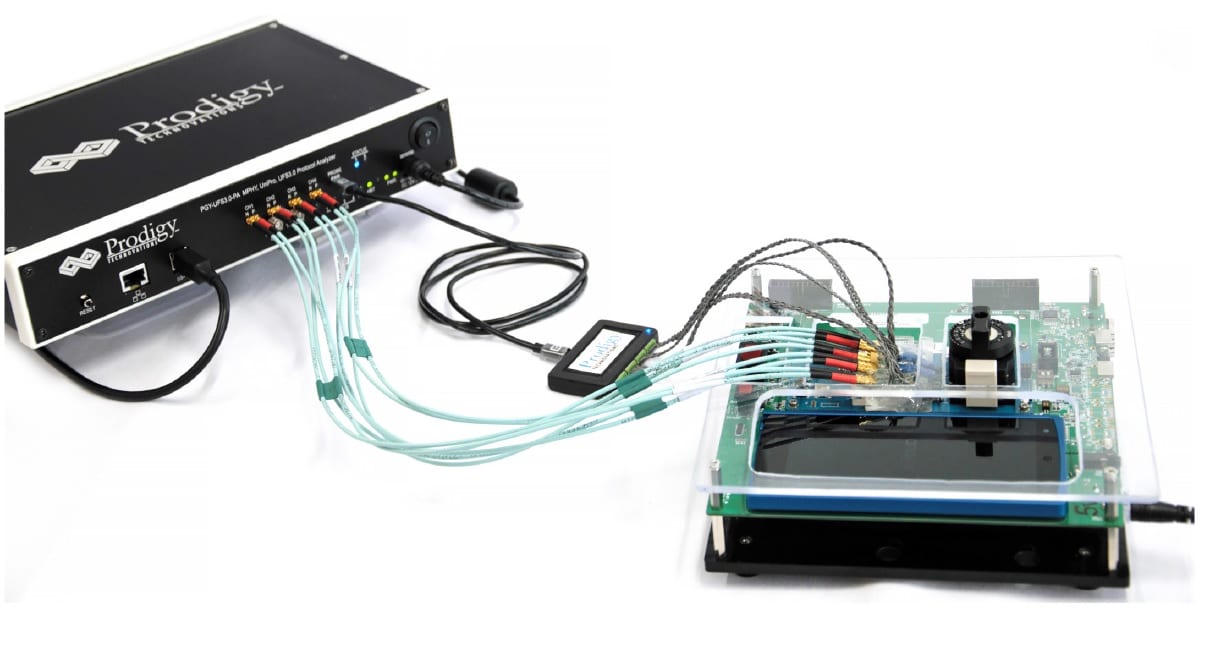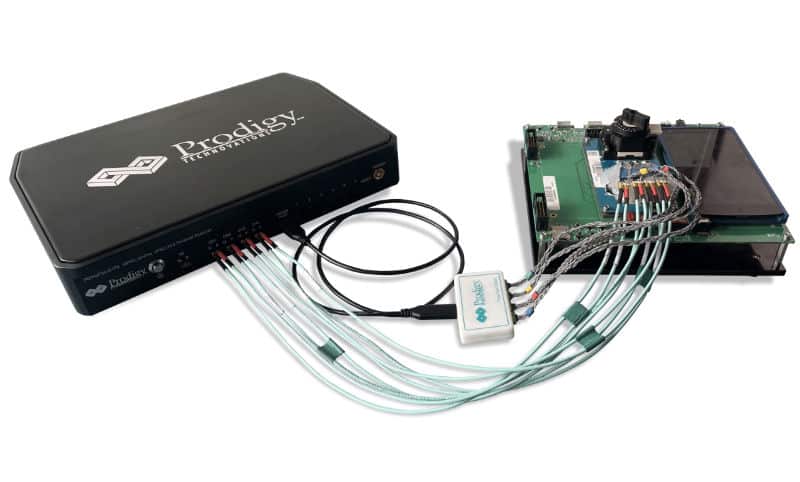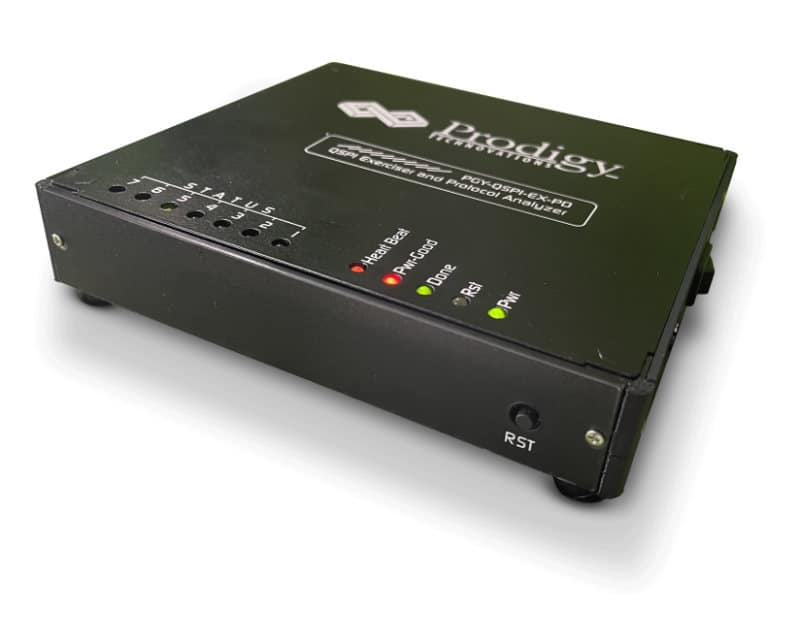Description
SD Protocol Analyzer (PGY-SSMlite-SD) ist the Protocol Analyzers with multiple features to capture and debug communication between host and design under test. PGY-SSMlite-SD Protocol Analyzer supports SD 2.0, SD3.0 (UHS-I) for data rates up to 200MHz DDR mode.
PGY-SSMlite-SD Protocol Analyzer is a comprehensive Protocol Analyzer with multiple features to capture and debug communication between host and memory under test. The innovative active probe has minimum electrical loading on the device under test (DUT) and allows protocol data capture without affecting the performance of the DUT. In an industry-first feature, the PGY-SSMlite-SD protocol analyzer allows continuous streaming of protocol data from the PGY-SSMlite-SD Protocol Analyzer to the host system (using USB3.0 or GbE interface) running the UI. Comprehensive decoding of protocol data, command units, and real-time error analysis enables effective verification of communication of SD host and device.
PGY-SSMlite-SD Protocol Analyzer enables design and verification engineers to test and debug SD by triggering command, response, data, or CRC errors. It also provides instantaneous decoding of Command, Response, CID, CSD, and Ext CSD registers. The Analytics feature offers an easy analysis graphical representation of command, response, data, and frequency of operation for the acquired duration.
Supported Interfaces:
- SD 2.0, SD3.0 (UHS-I)
Features SD Protocol Analyzer
- Continuous monitoring of protocol data for a long time to capture elusive events (more than 30GB data capture)
- Analysis of captured data per standards for protocol integrity, count of data bursts, CMD CRC errors, Response CRC errors, Data CRC errors, Timing Values, and Reserved commands
- Hardware-based protocol-aware trigger capability in real-time enables capturing specific Events. Triggering facility on patterns, commands, or error events.
- Users can identify the anomalies by decoding command and response arguments.
- Analytics feature provides analysis of acquired protocol data by plotting command, response, data, and frequency of operation over acquired time.
- The analytics feature also provides the decoding of device registers for easy analysis.
- Filters allow you to view specific packets in decoded protocol packets.
- Search feature for specific events in protocol activity.
- Easy-to-use user interfaces save time on the learning curve.
- Handles long-duration capture and displays the decoded data without demanding extensive resources in the host computer.
- Inserting markers [using Trigger-In] in protocol activity helps in correlating the input digital signal with Protocol Activity.
- Trigger-out signal for any specific protocol event allows triggering of other instruments such as an oscilloscope.
- Interface to host system [running UI] using USB3.0 or Gigabit Ethernet interface.
- Flexibility to upgrade the hardware firmware using the GbE interface provides easy field up-gradation of the firmware.
- Export of Decoded data packets to txt file for further analysis.
Setup
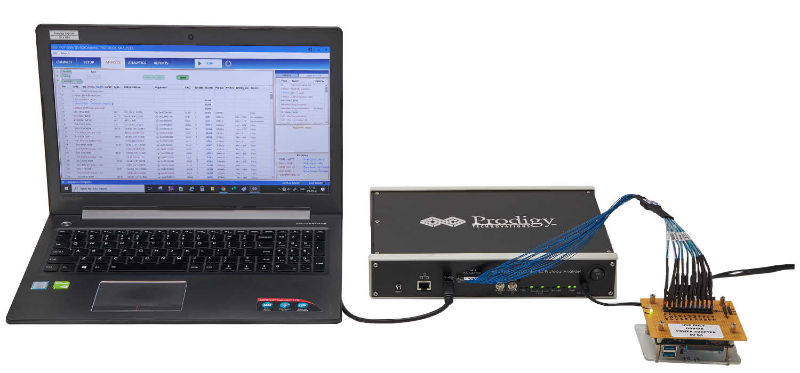
PGY-SSMlite-SD Protocol Analyser works on the principle of fat-pipe analysis where the analyzer probes are connected on the interface bus between host and device[memory] of the unit under test. It captures all transactions that are going on between the host/device and does real-time analysis for errors + a detailed analysis of the captured data which is made available through UI running on a host system. Captured data is stored in the hard disk of the system running UI, enabling a long capture [expect to have enough free space in the hard disk]. PGY-SSMlite-SD Protocol Analyzer interfaces to host using USB3.0 [Super Speed] and GbE. PGY-SSMlite-SD analyzer & UI software runs in the host machine. PGY-SSMlite-SD protocol analyzer also has the capability to capture boot data for eMMC.
Probing
PGY-SSMlite-SD Protocol Analyzer has an active probe, which provides very flexible probing with minimum electrical loading of DUT. This is specifically designed keeping to address challenges in probing eMMC/SD/SDIO signals. The probe supports 200MHz DDR bandwidth so that SD signals can be captured without any error. Probes have a flying probe lead set with a berg post connector and solder-able probe tips making it very convenient to connect to DUT.
Comprehensive Protocol Analysis
PGY–SSMlite-SD Software provides the industry’s best protocol analysis capabilities. A simple-to-use interface reduces the complexities and time for protocol debugging. Time-stamped view of decode listing provides a complete view of protocol activities between host and device. By clicking on selection prompts, the user can get the decode of arguments, CSD, CID registers, data activities, and more.
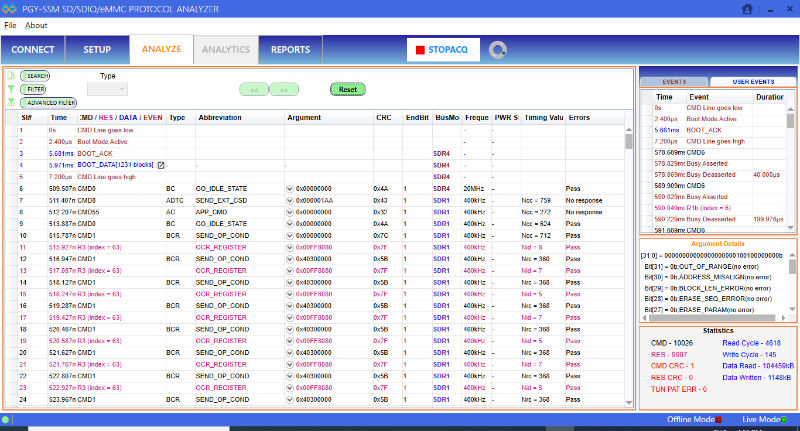
Protocol Data Capture and Trigger
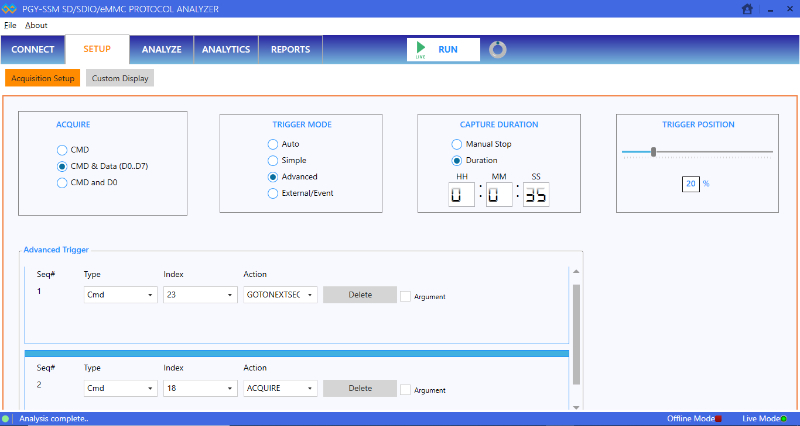
PGY-SSMlite-SD Protocol Analyzer has powerful protocol-aware trigger capabilities that allow the capture of protocol events at specific events. PGY-SSMlite-SD supports simple and advanced trigger capabilities. PGY-SSMlite-SD can trigger specific command, response, and CRC error conditions. Advanced trigger capabilities allow sequential trigger conditions to capture protocol data after a sequence of events. In Auto mode, data is captured by pressing the RUN button. Protocol data capture duration is controlled by manual stop or setting the capture duration. Manual stop offers the flexibility of set protocol data capture by visual activities in DUT. In time duration user set data capture in secs to 3 to 4 hours. During the capture mode, protocol data is continuously streamed to the host system hard disk drive for storage.
Analytics
A) Analytics features quickly provide insight into protocol activity without going through the complete protocol activity. The Analytics view is a bird’s eye view of protocol activity for the captured long-duration data. It reduces analysis time by viewing plot command; response, data, and frequency of operation of captured data. The user can search for specific commands or responses in the plot.
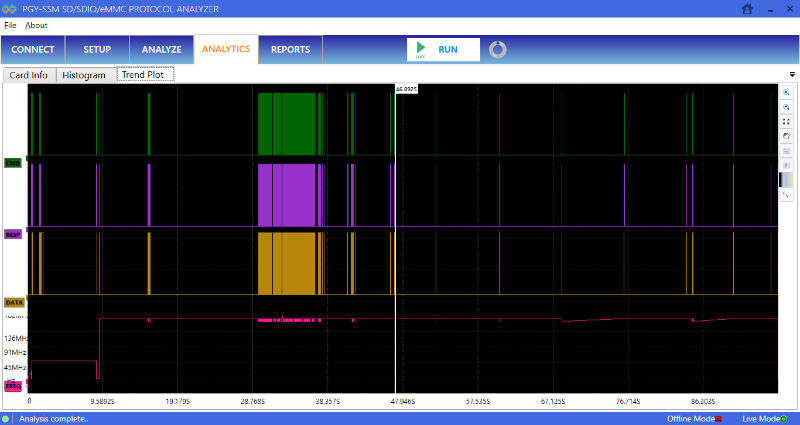
Card/Device Information
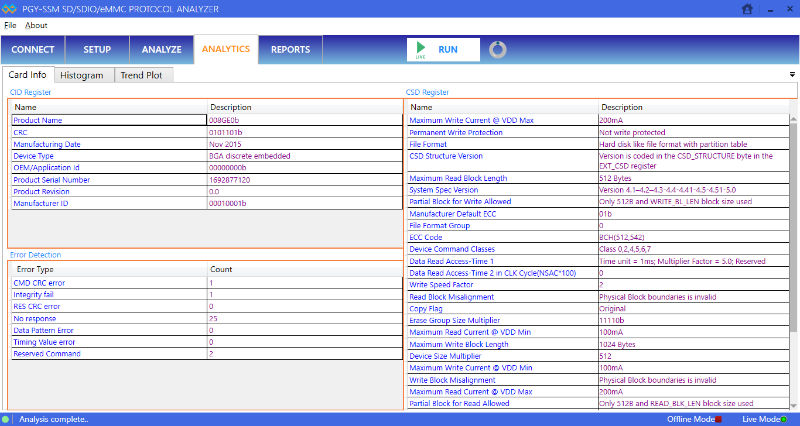
B) Card/Device Information provides decoding of register argument of device. Now the user no longer needs to manually decode each register value.
Host Machine Minimum Requirements
Microsoft Windows® 8, Windows 7, 16GB of RAM; Storage with at least 50 GB HDD space for storing the acquired data. Display with a resolution of at least 1024×768.
Warranty
Hardware and software carry a warranty of one year. Probes are covered three-month warranty for any manufacturing defects
Technical Data
| Spezifikation | 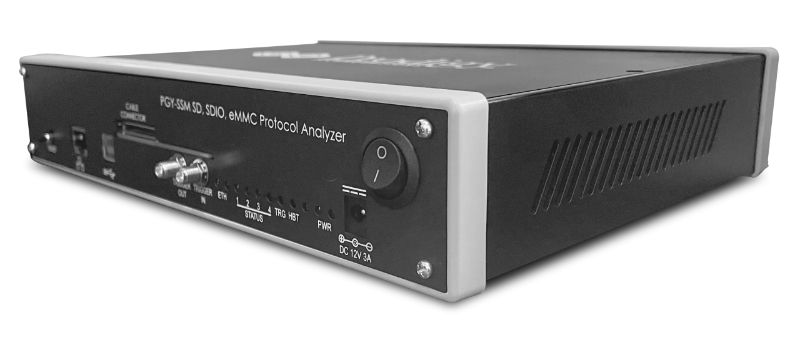 |
|---|---|
| Interfaces Supported | SD3.0 (UHS-I), SDIO4.0, and eMMC 4.41/4.51/5.0/5.1 Specifications |
| Protocol Decode | Command, Response, CRC, Data, Boot Data, Arguments, Device registers |
| Data Decode | 1 bit, 4 bit, 8 bit SDR or 4,8 bit DDR |
| Protocol Test | Protocol Integrity, CRC Errors, Timing values, Data CRC Errors, Reserved commands |
| Operating Voltage | 1.2V, 1.8V, 3.3V |
| Storage Capability | Continuous streaming of protocol activity up to 30GB. |
| Capture Mode | Manual Run/Stop, Time-specific |
| Capture Duration | time 1 sec to 5 hours |
| Trigger | on Command, Response, CRC errors, Sequential trigger |
| Trigger Actions | Capture data and/or trigger out signal |
| Signal Input | Digital Signal input to mark the activities in Protocol activity |
| Host System Interface | USB3.0 or GbE interface |
| Host Machine Minimum Requirements | Microsoft Windows® 8, Windows 7, 16GB of RAM. Storage with at least 50 GB HDD space for storing the acquired data. Display with resolution of at least 1024×768 |

